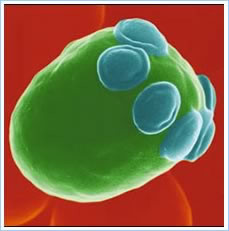FRIDAY, 8 OCTOBER 2010
In 1930, the evolutionary biologist Ronald Fisher proposed that every genetic mutation would affect every trait of an organism. This theory, based on the phenomenon of pleiotropy - where a single gene affects more than one trait - further suggests that random mutations will be more likely to benefit simple organisms than complex ones. This apparent 'cost of complexity' has puzzled biologists because it should prohibit the origin of complex plants and animals.Recent research, published in Proceedings of the National Academy of Sciences [1], argues that theoretical models based on this principle are inaccurate. Using a large dataset of mutations in yeast, nematode worms and mice, the authors of the study found that most mutations affect only a small fraction of traits, and very few affected many. The analysis also gave the surprising result that the more traits a gene influences, the stronger its effects were on each trait.
Fisher's argument still holds true: there are lower frequencies of beneficial mutations in complex organisms. However, this can be overcome by a larger gain in fitness when a mutation is beneficial and a greater probability that it will become 'fixed' in a population. The overall outcome is that organisms with intermediate complexity have the optimal adaptation rates, and pleiotropy may even promote the evolution of complex forms.
Written by Robert Jones

